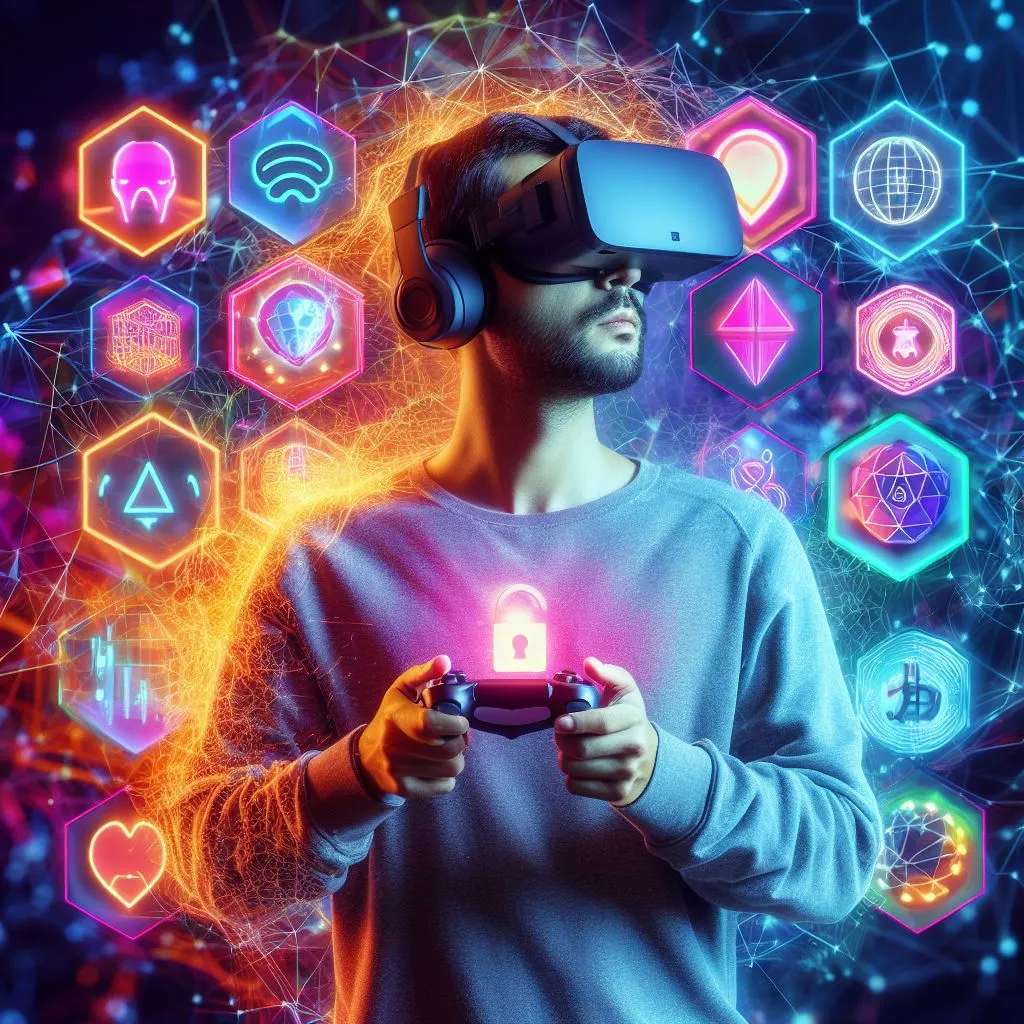Gaming is one of the most popular and profitable forms of entertainment in the world. According to a report by Newzoo, the global gaming market generated $174.9 billion in revenues in 2020, and is expected to grow to $217.9 billion by 2023.
Gaming is also a dynamic and innovative industry that constantly evolves with new technologies and trends. In this blog post, we will explore how three emerging technologies – artificial intelligence (AI), virtual reality (VR), and blockchain – will shape the future of gaming and create new opportunities and challenges for game developers and players.
How AI Will Change Gaming
AI is the technology that enables machines to perform tasks that normally require human intelligence, such as learning, reasoning, decision making, and creativity. AI has been used in gaming for decades, mainly for creating realistic and adaptive game characters, environments, and scenarios. However, AI is becoming more advanced and capable of generating new content, enhancing user experience, and improving game design.
Artificial Intelligence (AI) can generate game content like levels, maps, quests, items, and stories based on rules or player preferences. This saves time and money in game development and adds more variety to games. No Man’s Sky, for example, uses AI to create an enormous number of unique planets for players to explore. AI can also personalize the gaming experience for each player, considering their behavior, preferences, skills, and emotions. This makes the game more engaging and satisfying. Additionally, AI can assist human game developers and players in creating original and innovative game content, fostering creativity and enabling new forms of interaction. For instance, AI Dungeon is a text-based adventure game that uses AI to generate dynamic and immersive stories based on user input.
How VR Will Change Gaming
VR is the technology that creates an immersive and interactive simulation of a three-dimensional environment that users can experience through a headset or other devices. VR has been a long-standing dream for gamers who want to escape reality and enter a virtual world. VR has the potential to revolutionize gaming by providing unprecedented levels of immersion, presence, and interactivity.
Some examples of how VR will change gaming are:
- Immersive gaming: VR can create realistic and lifelike game worlds that stimulate all the senses of users, such as sight, sound, touch, smell, and taste.
- This can enhance the emotional impact and enjoyment of games, as well as create new genres and experiences. For example, Resident Evil 7: Biohazard is a horror game that uses VR to create a terrifying and visceral experience for players.
- Social gaming: VR can also enable users to interact with other players or characters in a virtual space, using avatars or motion capture.
- This can foster social connection and collaboration among gamers, as well as create new forms of communication and expression. For example, Rec Room is a social VR game that allows users to play various games with friends or strangers online.
- Educational gaming: VR can also be used for educational purposes, such as learning new skills, exploring new cultures, or experiencing historical events. This can make learning more fun and effective for gamers, as well as create new opportunities for education and entertainment. For example, Google Expeditions is a VR app that allows users to go on virtual field trips to various places, such as the Great Barrier Reef, the Taj Mahal, or the Moon.
How Blockchain Will Change Gaming
Blockchain is the technology that enables a distributed and decentralized ledger of transactions that is secure, transparent, and immutable. Blockchain has been mainly associated with cryptocurrencies, such as Bitcoin and Ethereum, but it also has many applications in gaming.
Blockchain can transform gaming by providing new ways of ownership, monetization, and governance.
Some examples of how blockchain will change gaming are:
- Ownership gaming: Blockchain can enable users to own and control their digital assets, such as game items, characters, or currencies, in a secure and verifiable way.
- This can increase the value and utility of these assets, as well as create new markets and platforms for trading and exchanging them. For example, CryptoKitties is a game that uses blockchain to create and breed unique digital cats that users can collect and trade.
- Monetization gaming: Blockchain can also enable users to earn money from playing games, either by creating or selling their own content, or by participating in various activities or challenges.
- This can incentivize users to play more games, as well as create new revenue streams for game developers and publishers. For example, Axie Infinity is a game that uses blockchain to reward users with cryptocurrency for playing and breeding fantasy creatures called Axies.
- Governance gaming: Blockchain can also enable users to have a say in the development and direction of games, either by voting on game features or rules, or by contributing to the game code or design.
- This can increase the engagement and loyalty of users, as well as create new forms of collaboration and innovation. For example, Decentraland is a game that uses blockchain to create a virtual world that users can build and govern.
These are some of the ways that AI, VR, and blockchain will change the future of gaming and create new possibilities and challenges for game developers and players. Gaming is an exciting and evolving industry that will continue to surprise and delight us with new technologies and trends.


